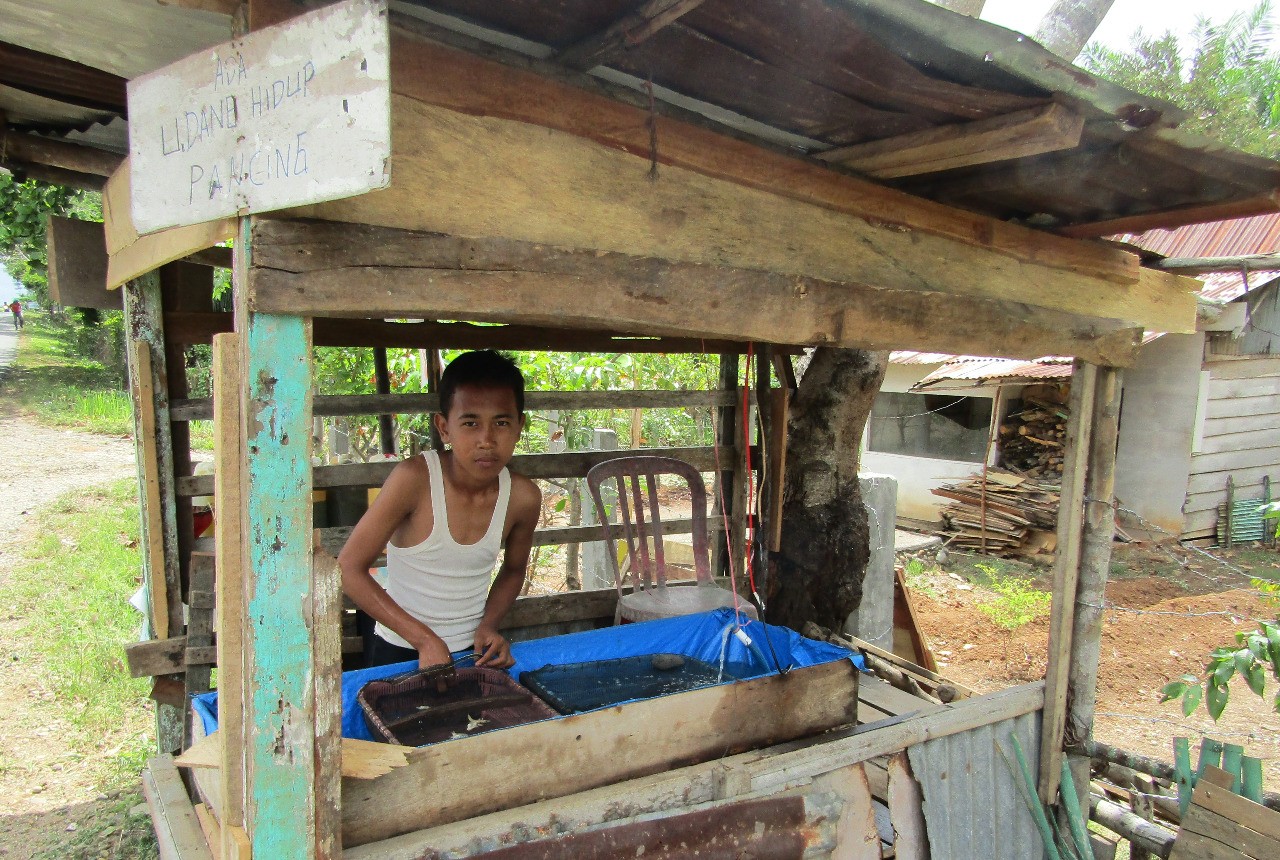Popular Reads
Top Results
Can't find what you're looking for?
View all search resultsPopular Reads
Top Results
Can't find what you're looking for?
View all search resultsBurdened from birth: Children raised in poverty earn 87% less as adults
A child who lives in poverty between the ages of 8 and 17 will, on average, earn 87 percent less than a child who grows up in a family above the poverty line, according to a recent study.
Change text size
Gift Premium Articles
to Anyone
U
nder a sagging wooden shelter in Bengkulu City, Bengkulu, junior high school student Robi Anto lifts a tray containing dozens of shrimp that he and his father caught the day before.
Although the part-time prawn fisherman admitted that he was not at the top of his class, he said he was determined to try his best to enroll in a university to realize his lifelong dream of becoming an entrepreneur.
“[…] so that I won’t always be poor. I don’t want my future children to be like me, struggling to even eat three times a day,” said Robi, a recipient of the government's school subsidy program, Smart Indonesia Card (KIP), whose favorite school subject is science. He lives in the province with the second highest rate of urban poverty in Indonesia.
In East Manggarai, East Nusa Tenggara (NTT), junior high school student Vergilius Delfiano Jun has set his heart on becoming a teacher despite having limited access to good-quality education.
“Even though I’m studying at a rickety school that looks as if it’s about to collapse, I will remain motivated to pursue my future ambitions,” said Vergilius, who is the child of a local farmer in the third poorest province in Indonesia after Papua and West Papua.
Robi and Vergilius are two of many children in poverty who dream big, but a new study shows that children who have lived through poverty in Indonesia will most likely be paid less than their more privileged counterparts when they grow up.
A study called “The Effect of Growing up Poor on Labor Market Outcomes: Evidence from Indonesia” suggests that a child who lives in poverty between the ages of 8 and 17 will, on average, earn 87 percent less than a child who grows up in a family above the poverty line.


















